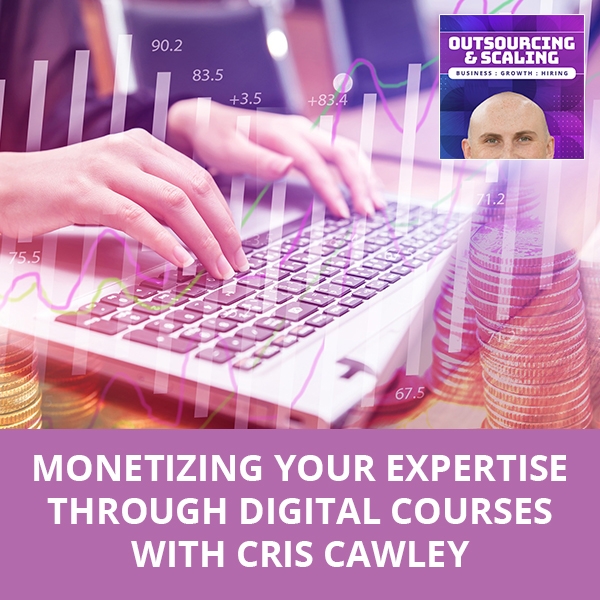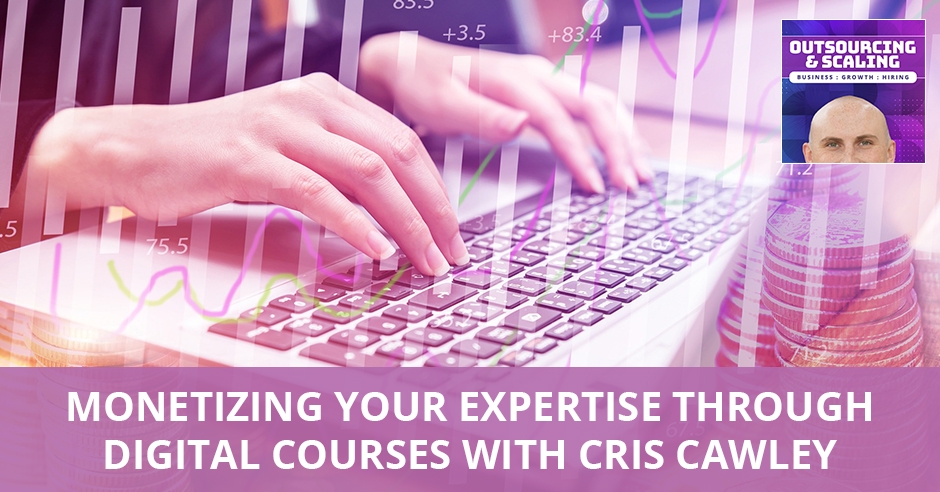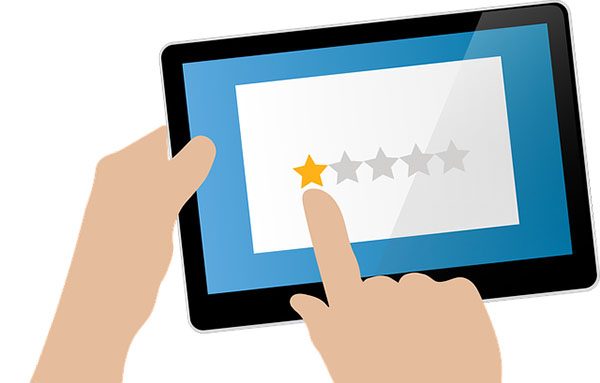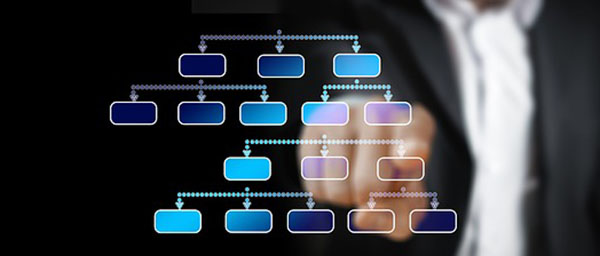


—
Listen to the podcast here:
[smart_track_player url=”https://www.podetize.com/statsapi/www.podetize.com/wp-content/uploads/fileuploads/11-5b145ef137b51b3d1af0633e9305c43d/06/2019/af9e98e8c26886847a15da4bfcc11666.mp3″ title=”Monetizing Your Expertise Through Digital Courses with Cris Cawley” artist=”Nathan Hirsch” image=”https://freeup.net/wp-content/uploads/2019/04/OAS.png” ]
Download the audio file here.
Monetizing Your Expertise Through Digital Courses with Cris Cawley
I have a special guest, Cris Cawley. Cris, how are you?
How are you, Nathan? It’s nice to be here. Thanks for having me.
Cris is a serial entrepreneur, a successful digital marketer, wife and mom to three amazing girls. She began her digital marketing career in 2000 and has helped 150,000 entrepreneurs achieve success in their online courses, coaches and high-ticket consulting services. Her bestselling programs teach entrepreneurs step-by-step proprietary systems that help them leverage their knowledge, expertise and passion into online profits through digital courses and high-ticket programs. She’s been featured on many stages alongside some of the world’s most sought-after speakers, influencers and thought leaders.
She has a special passion for helping other entrepreneurs and experts figure out profit from the internet marketing maze. She is the Founder of Digital Course Rockstar. You can find her at www.DigitalCourseRockstar.com and The Edge Coaching Academy. In her spare time, she enjoys spending time with their family and traveling. It’s quite an impressive resume and I want to get to all of that. First, let’s take a step back before you were helping people grow their programs. What were you like as a kid? Were you a straight-A student? Were you a rebel? Did you always know you wanted to be an entrepreneur?
No, I was not a straight-A student at all. I think some people are just born with it. I feel like entrepreneurship runs through my veins. My husband always says I look at everything like a business and how it can be better. Everything is a process. Everything is a system. I was eight when I started selling stuff door-to-door in our neighborhood. I was making things and selling crafts door-to-door and my mom’s apologizing to all the people in our neighborhood about, “I’m sorry, my kid is knocking on your door selling things for $3 or $1.” As a young kid, I always had that side hustle going. I’m not sure if that’s good or bad, but it never leaves. You have it. It’s one of those things that’s in you. It’s the way you are. It’s the way you’re wired.
Did you graduate high school? Did you graduate from college?
Yes, I did go to college, but I never fit in. Even at high school, I felt like I didn’t care learning about history, science or whatever. I was more interested in business and I felt like the things that I did want to learn. Even now, I have three kids and in school, they don’t teach them anything about the stuff that we actually do every single day. As a business owner, entrepreneurship and leadership, business, even things like even balancing a checkbook or looking at a spreadsheet, those are things that I never learned. I was like, “How does this guy run a business or what about this guy?” I was always attracted to people. My family had no money when we were kids, so people who did have money, I was like, “What do you do and how do you do that?”
I always was very inquisitive and asked a lot of questions but I felt like school, even college didn’t prepare me for the real world. Not just the real world and a job that we were conditioned or taught this is the way it is. I never fit in to that group. As I went out of college and I started going to different masterminds and things like that or different events where other people like me were like, “These are my people.” These people get me. It was the first time, I was 30 when I felt like, “I fit in. These are my people. These are the people that understand and get me.” It’s sad but true. It took me until I was 30 to figure it out.
You figured it out and you were like, “I want to be an entrepreneur.” I think a lot of entrepreneurs struggle in that year one. Whether it’s figuring out what they want to do, what their message is, how to handle the financial side and then the overall amount of hours you have to put into the business. Walk us through year one.
My first introduction to business or having my own business was me working for someone else and I saw the company make six figures and me getting paid like a fraction. Three months of work, I was at a recruiter, a head hunter and the company made $100,000, and I got paid $500. I was like, “I did all the work and I only got paid what?” From that moment on, I was like, “I want to be that guy. I want to be my boss. I want to be the guy who has the company. That’s ridiculous. I did all the work and he’s paying me peanuts, but I did everything.”
We live in a world where everybody wants everything now.
That’s what got me going and got me thinking and then I started my own stuff. I started digging around like everybody. I see all the Entrepreneur magazine, all the magazines, the ads in the back, make money from home. I started thinking, “That’s the first step. I want to work from home. I don’t want to commute two hours each way every day like I was in San Diego. What options are there? There’s multilevel marketing. There are ads in Entrepreneur magazine. There’s this online internet marketing stuff. What’s that all about?”
My first introduction to my first real business was I saw the little eBook back in the day. It’s that whole thing. I was like, “That’s so cool. Somebody basically created this Word doc, PDF-ed it, put a fancy cover on it and they’re selling it over and over.” Back in the day, this is the year 2008. I’m old school. I remember seeing they had this counter where they were showing thousands of people buying this thing. I was like, “This dude made a few hundred thousand dollars on a $7 eBook. It wasn’t really the content of the eBooks, but it was that whole concept of he did the work one time and now he’s making money again and again. All I could think of was like, “That definitely beats a four-hour commute every day. It leverages my time. All these things came flooding to me. From that point, once I knew that, it was like I couldn’t un-know that. There was no going back. The first year was miserable. I didn’t make any money for three years.
The three years went by, you were not making any money. What’s the breakthrough or that opportunity that comes up?
Back in the day, it was a webinar. Webinars have always been around, but it wasn’t marketed as a webinar. It was called a webinar. That for me, was my first opportunity. I actually made six figures on a webinar but I don’t say that lightly. I don’t say that like, “Look at me. I made six-figures.” I went through three years of hell to get to that, to make that and then figuring it out and trying this and trying that, trying affiliate marketing and trying my first product and doing an eBook to an actual course than a product. Back then, it was a physical product. It wasn’t a digital product. They were physical. You come to the seminar and go home with a pile of books, CDs and tapes. It was that type of thing.
That webinar was my first breakthrough and my first belief. I remember my husband called me from work, he was a sports caster. He was at work and it was like, “This is really weird. We had thousands of dollars in our bank account in the last two hours.” It was from a webinar I had done. He thought it was some fraud. That was like, “This is real. I can make money doing this.” I can find people that have a problem and identify habits that I have a solution. My product was the pathway to get them there and then they get an outcome or a transformation and I can charge for that. That is where it started. That led to speaking, selling and more webinars, more products and coaching, and all of those things.

You’ve actually seen a lot of digital products. I’m sure you’ve had your own ones that have failed, that has succeeded. What makes the difference between success and failure when it comes to the digital product space?
Whether it’s a digital course or a coaching program, it’s getting people and having an outcome. If you have to have sell digital products and find something, you have to be able to get somebody a result. You have to be able to take them from amateur to expert doing something. You have to be able to get them from point A to point B. “In this course, in this eBook or in this coaching program, I’m going to teach you how to go from here to here. That the pathway to get there is your steps, the pillars one, two, three or the modules,” whatever you want to call it. If you can’t get people an outcome, every person that goes to that course reads that book or does that coaching program isn’t going to be happy.
The secret is giving that person, the end user or the client, an outcome. That person is getting an excellent outcome or a transformation. That’s the secret. Some people are experts and they work in Corporate America. They make $100,000, $200,000 a year and they have a skill set, they just didn’t know how to monetize or leverage it. They can help people go from here to here. They don’t know how to sell that for high dollar. Some people don’t have skill sets, but they’re like, “I’m a good teacher.” If nobody’s getting an outcome, you’re not to have results. You’re not going to have this social break. You’re not going to have people that are happy. You’re not going to testimonials, so it’s not going to work. You’ve got to be able to get people at some outcomes or take them from amateur to expert in something for it to be successful.
I almost put into three tiers of it. You’ve got the content or the product, the end stuff that you can teach. You’ve got the funnel and the process, and that’s where you help people create and maximize. You then got their following and whatever audience they have, whether it’s YouTube, Instagram or whatever it is. Do you find that people need to have two out of the three, one out of three? Can you just completely start from scratch and build all that together?
We have a lot of people that start from scratch. They didn’t have anything. A lot of times people, they’re in other business models who had been successful doing something else, but they’re like, “I’m tired multilevel marketing,” or “I’m tired of my job, but I’m paid $200,000 a year and I’m the best HR manager ever. I want to take that skill set. I want to monetize it. How do I do that?” A lot of people think you have to write a book or go start their own podcast. It’s not that at all. You basically have to show people how to get their results. Here’s what I do, here’s where you are, here’s where you are looking to go and get them a pathway to get there.
No matter how good of a teacher you are, if you’re not getting anybody an outcome, then it’s not going to work.
We have people who have tons of experience who have spoken in stages and they’ve done TED Talks and they’ve written books. As you know, being a speaker or writing a book doesn’t mean you’re making millions of dollars, but you have credibility. They’ve got the people already. They’ve got a following. They have people who know who they are, they have visibility, but they don’t have a product to sell. You have people who have zero visibility, who have the best skill set ever, who are the best teachers ever. We had a guy come to us who are helping people instantly cure back pain through posture. I was thinking to myself, “If you’re out there seeing a posture expert, no one’s raising their hand going, ‘Help me correct my posture,’” but half the room has back pain. If people know that you can cure your back pain through correcting your posture, now we’re talking. He’s helped hundreds of people and has all these video testimonials and nobody knows who he is. I’m like, “How do you not have a digital product or a coaching program?” He’s a trainer in a gym. He’s helping people every single day but he’s not monetizing it because he had no idea that he could have a course. Those are the types of examples.
People have one of those three things. Some people have two of those and some of them have all of them and still aren’t making money. Some of them have none of them and make money. I think it’s important by the end of the day, that you have all of those to really maximize and to scale your business to seven figures or eight figures. You need all of those but when you’re starting, we have people that start with none of that. Anybody can learn that process. The only prerequisite is that you have a skill set or you have some expertise where you’re genuinely, legitimately helping people and getting someone an outcome or a transformation of some sort.
You can’t teach them the expertise, but once they have the expertise, then you can help them do it.
They can’t fake it. There’s a lot of that online now. You have to gauge, you have to be paying attention because a lot of people take one course or go through one coaching program, they’re like, “I’m an expert,” and now they’re selling courses. You’ve got to make sure you can get people that outcome. You can’t really go out there and fake your expertise because that’s going to shine through at the end of the day because you didn’t get someone their results. Very shortly down that path, it’s going to come to a halt because people are going to say, “This doesn’t work. This program doesn’t work. I didn’t get results.” You have a lot of unhappy people. Online these days, it’s very easy for people to say, “This is terrible. I hate it.” You’ve got to be careful with that.
The only thing you have to have is a skill set or expertise. A lot of times, we’ll take people through an idea of validation process so they can validate, “There are people already looking for this. There are people already selling this. There are people that want this already,” before they even start. Sometimes it’s a matter of pulling it out of them. They have skill sets they don’t even realize. We had a mom who came to us. She was a homeschool person and she was like, “I don’t work. I homeschool my kids,” and now she has a bestselling homeschooling product. People like me who tried to homeschool and miserably failed once, I’m like, “There’s no product for that. Where did you learn to do that?” They don’t even recognize that they have a scale. You’re just going to have to pull it out of them. “What are you good at? Everybody’s good at something. We all have a gift.”

What’s a normal timeline? Let’s say someone has a skill, maybe they have a small audience and they know the basics of the internet, but they’re not building anything yet. Within six months, within a year? What’s a realistic timeline? Walk us through that initial process.
I would say 60 days is a safe bet and we are just generalizing 60 days. For some people, it’s 90 days. In fact, it’s interesting, we did a little case study. We did a little pilot in our coaching program where we took what we were teaching people in twelve weeks and we put it into six weeks not because I didn’t think, “I can teach it in six weeks.” Absolutely. If it’s a little bit longer, we go through the process and go through all the modules. The thing is, can people implement in six weeks? A lot of times people are working full-time jobs and they have other things going on, so they can’t really dedicate more than an hour a day or ten minutes a day. Some people have three hours, it depends.
It’s a matter of getting into that process. Most people on average, to create, whether you’re creating a coaching program or a course, it’s still the same. You’re making an outline, still the same pillars of content, still the same modules. It’s a matter of, “I’ll go to Barnes & Noble. I’ll buy the book and I’ll do it myself,” or the coaching is just done with you. I’ll do this with you, we’re covering the same content, the same information. I’m doing it with you. I think 60 days on average is what’s out there. We’ve had people do it in at a month. We’ve had people that take something that takes six weeks and draw it out to six months because they’re working on it ten minutes a day. It depends, but 60 days is a good, safe timeframe. It’s a good average.
How do you decide whether someone should do more of the coaching and consult, or they should have a digital product, or they should have a high-ticket or low-ticket offers, or you could try to get people to do all that? Is that what you suggest? How do you figure that out?
I think some people, they may have a skill set or expertise and they’re just not as good at teaching it. They’re not as good at helping people get that transformation. Maybe they don’t have the people skills, or maybe they don’t like to be on video. They don’t want to record themselves. They’re not people-people. They don’t want to talk to people. Some people prefer one-on-one. They feel intimidated by the group thing. We encourage people, we show them how to sell high-ticket because I do feel the high ticket is where it’s at. “I don’t want to go up there. I have a lot of clients that come to me and say, “My mentor told me to do a $37 teachable course. I’m like, “My word.” If you go out there and do that, good luck. Our version of that is a lead magnet because if someone can think they can go get it, it’s like saying, “I want to lose weight, but if I can go over here and get to buy this $10 book at Barnes & Noble and get the same result, then if that doesn’t work, then I’ll come hire you.”
Clarity equals confidence equals sales.
That’s what’s going to happen. They’re going to go, “I’ll try that $37 course and if that doesn’t work, then I’ll try your coaching.” You don’t want to put that out there. I think some people, you can teach someone to be a coach. There are some things. It’s almost like saying being driven. I can’t teach you to have drive. If you’re not driven or motivated, that’s a very hard thing to instill in someone. You either have it or you don’t. Coaching, most people are okay, you can do it and some people are excellent at. It’s getting to 80/20 rule. Most of the people that go through it says, “I want to be a coach,” if they had the drive to do it and they’re somewhat articulate, can speak and teach. It’s like if I were to come over to your house and to sit next to you at your desk and go, “Show me what you’ve got. Show me the process. Teach me what you do.” As long as you can get me the outcome, get me to the result or get me the transformation, awesome. You can be a coach.
Some people are better suited for having that product and having it sell on autopilot and just create another product in six months or a year. It depends. Most often, I think the ideal situation is having both only because when you’re talking to someone on a discovery call about what you do, what you have to offer, not everybody can afford a high-ticket coaching program. Sometimes, let’s say it’s a $15,000 program, we break it up to $5,000 over three months perhaps or something. That doesn’t work for everybody. Instead of saying, “Do you want it or do you not? Do you not want to proceed or do you not?” They want it, but they can’t really do this or they’re not quite there yet.
We down sell to a course. A course is a great way. It gives them an opportunity to get in. I can buy in. I can start educating myself. I can start getting a piece of the training, I can start learning. Once I’m a success with that, you want to make sure that the course is good. They’re going to get the transformation or the outcome, but most people get along and they get in that process and they are like, “This is a little harder than I thought. I need some help,” but they’ve made some sales. They start having a little bit of success and they can afford the high-ticket coaching program. We always recommend both because it’s the same content, the same outline, the same modules, the same pillars. It’s the same outcome. It’s a matter of we’re helping them get there versus through a group coaching program, like a once a week session and then a once a week Q and A where you’re answering everybody’s questions but you’re still leveraging your time and expertise. It’s not everybody. Some people are more comfortable doing one or the other and that’s okay.
It makes a lot of sense. What am I not asking? What else should people know about starting their own digital course, getting into their own business in that way?
A lot of the people that don’t monetize their expertise are people who think, “I have a product, but I could never be a coach.” I think a lot of it’s up here. They don’t realize what’s possible, what’s on the other side. We have clients, they sign up people for a twelve-month deal for $2,500 a month or a six-month deal for $2,000 a month. The lifetime value of that client is $12,000 versus $1,000 course. It makes sense to try it, and most people are unwilling to try. They don’t understand the steps of the process. They don’t understand what order to do the steps in or maybe what the steps are or what’s the perfect recipe? Your recipe calls for butter, but they’re using vinegar and they’re like, “It doesn’t taste quite right,” because you didn’t follow the recipe.

You’ve got to follow a proven system. You’ve got to follow the steps. You’ve got up all the steps in order. A lot of people are out there chasing and putting themselves everywhere, in every podcast and every group and posting and doing all these things but they don’t even need that yet. They haven’t even done the stuff that they should’ve done in step one. They’re doing step five when one isn’t done. They’re doing their process out of order and they don’t really have a process to follow. I feel just knowing the steps or knowing the processes and following it, we always get a result. It’s a matter of people implementing and if you can listen and follow a process, can you follow a process and do it?
I would say I don’t get in your head. If you’re an expert, the course is a great way to start. If you’re already in and doing and coaching or consulting still and having a course, creating a course from your coaching program, it’s a great down sell. It’s a great way to at least build a bucket over here. It’s for leads, that sort of thing. Lead magnets, that sort of thing. With the high-ticket coaching, we see people collecting $60,000 a year, $30,000 a year or $24,000 a year. It can be twelve weeks. It could be six weeks. It’s group coaching, so you’re maximizing and leveraging your time. Of course, you could do one-on-one coaching too. One-on-one coaching just isn’t as scalable because you reach a tipping point where you’re like, “I can’t take on any more clients. I can’t possibly do another one-on-one session this weekend.” I’m slammed and booked, that sort of thing. There are some situations or some things that people teach the call for that. We help people get clarity, get super clear. Clarity equals confidence equals sales.
Getting help from people, getting really clear on that and showing them a proven system and a process like anything. If you’re going to go build a swimming pool, you’ve got to put the iron or whatever, the steel in before you put in the rebar, before you put in the granite. There’s a process that you follow. I think that’s it. Don’t discount, don’t assume anything. “I can’t do that,” or “I don’t have anything to teach,” or “I only have a course. I couldn’t do a coaching program,” or “I’m just a coach and consultant. I don’t need a product.” We’ve proven the world wrong otherwise because we see what the numbers show otherwise. You can benefit from both and you can have both. In this day and age, I feel like high-ticket is where it’s at. You’re getting the best bang for your buck, you’re impacting people’s lives, changing people’s lives and they’re getting an outcome and result. You’re making good money, you’re paid for your time and you’re able to leverage that and have twenty people in the same class, just one. It makes six, seven, eight figures.
Cris, this has been awesome. How can people find out more about you and what do you have coming up that you’re excited about?
We actually went to this pilot program where we show people we were taking a twelve-week program and basically put it into six weeks. We are proving that we can get through this entire process of you creating a course and/or high-ticket coaching programs six weeks. We’re getting ready to launch that. It’s exciting that people want it now. We live in that world where everybody wants everything now. It’s just a matter of people you’d be able to implement and using your services and using FreeUp. We recommend FreeUp all the time to our clients because there are so many pieces of it that you don’t have to get caught up in the tech and the overwhelm, “I’m not a techie. I don’t know how to build a website. I don’t know how to do a funnel. I don’t know how to connect it all. I don’t know how to write emails,” me either. We hire people to do that.
Your website is a great start for those people because they can hire and bring in a great group of freelancers who are going to help them scale that much faster and get to the finish line that much faster. It’s a great thing. That’s the latest thing we’re working on. It’s a group coaching program. We love it because people get better results than when they do it on their own course. The courses are there. We’re doing webinars and trainings and always helping people. We’re doing that and getting ready to launch our first live event. Super excited to bring a bunch of course creators and coaches together in one room where we can all swap stories, and learn and grow fun stuff. You can reach us on DigitalCourseRockstar.com. That’s our weekly training CrisCawley.com is my site where we have the group coaching and that sort of thing on there, the one-on-one coaching. I’m always happy to help, always happy to reach out. It’s always worth that initial cost. Some people are like, “I do this. I’m not really sure if it’s in that model.” Always welcome. Always happy to do a call to see if you know where you are, where you’re looking to go. If there’s a way we can help, awesome. If not, we’ll try to recommend you or refer you to someone that can help.
Thanks so much for coming on, Cris.
Thanks for having me, Nate. It’s been great.
Important Links:
- Cris Cawley
- www.DigitalCourseRockstar.com
- CrisCawley.com
About Cris Cawley
 Cris Cawley is a serial entrepreneur, successful digital marketer, wife, and mom to three amazing girls. She began her digital marketing career in the year 2000 and has helped 150,000+ entrepreneurs achieve success through her online courses, coaching and high ticket consulting services. Her best selling programs teach entrepreneurs her step by step, proprietary systems to help them leverage their knowledge, expertise, and passion into online profits through digital courses and high ticket coaching programs.
Cris Cawley is a serial entrepreneur, successful digital marketer, wife, and mom to three amazing girls. She began her digital marketing career in the year 2000 and has helped 150,000+ entrepreneurs achieve success through her online courses, coaching and high ticket consulting services. Her best selling programs teach entrepreneurs her step by step, proprietary systems to help them leverage their knowledge, expertise, and passion into online profits through digital courses and high ticket coaching programs.
She has been featured on many stages alongside some of the world’s most sought-after speakers, influencers and thought leaders and has a special passion for helping other entrepreneurs and experts “figure out” and profit from the internet marketing maze. Cris is the founder of Digital Course Rockstar (www.DigitalCourseRockstar.com) and The Edge Coaching Academy and in her spare time, she enjoys spending time with her family and traveling.
